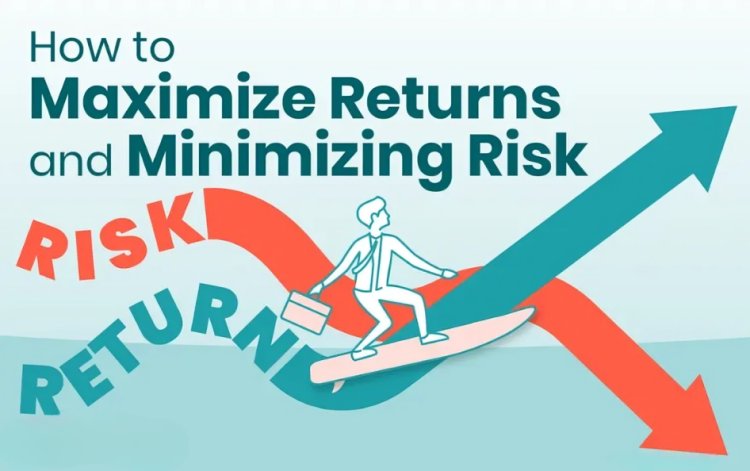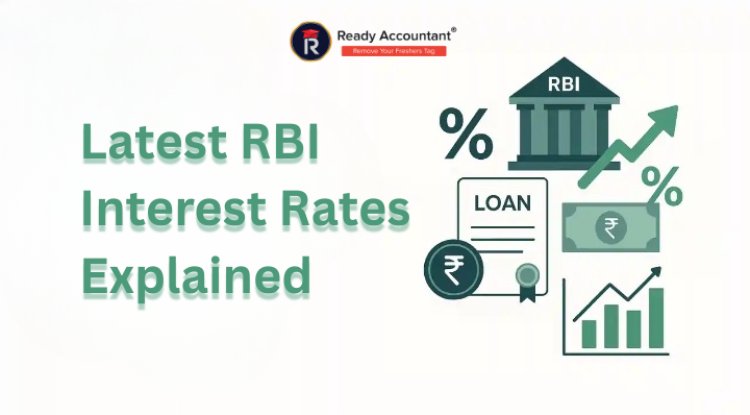Maximize Returns: Simplify Your Portfolio
The blog post “Maximize Returns: Tips for Index Fund Investors” explores how index funds—low-cost, diversified, and passive investment tools—can help investors build long-term wealth. It covers essential strategies like starting early, using SIPs, choosing low-expense funds, rebalancing portfolios, and aligning investments with goals like retirement. The article compares index funds vs mutual funds, highlights tax benefits in India, and forecasts a 10–14% CAGR in 2025. It concludes with a call to action for finance enthusiasts to upskill through professional courses like Certified Corporate Accounting, SAP FICO, and Taxation (Income Tax & GST) at the best accounting institute in Kolkata.

In the modern investing world, index funds have emerged as one of the most effective and beginner-friendly tools for building long-term wealth. Whether you're a novice investor or a seasoned professional, learning how to maximize returns with index funds can significantly improve your financial future. This guide will walk you through key strategies and insights under the theme “Maximize Returns: Tips for Index Fund Investors.”
What Are Index Funds and Why Are They Popular?
Index funds are passive investment vehicles that track a specific market index, such as the Nifty 50 or Sensex. Instead of attempting to beat the market like actively managed funds, they aim to mirror the index’s performance. This provides exposure to a diversified portfolio of top-performing stocks at a very low cost.
Key Benefits:
-
Low Expense Ratios
-
Diversification with Index Funds
-
Consistent Performance
-
Reduced Risk Through Market Averaging
These traits make index funds an ideal choice for long-term investing, especially in India, where market participation continues to rise.
Index Fund Investment Tips to Maximize Returns
To ensure optimum growth, follow these tried-and-tested tips:
1. Start Early and Stay Consistent
Begin as early as possible and invest consistently. A Systematic Investment Plan (SIP in index funds) helps average out market volatility while building discipline.
2. Choose Low-Cost Index Funds
Look for low-cost index funds in India with minimal expense ratios. Over time, saving even 1% in fees can lead to significantly higher returns.
3. Stick to Well-Tracked Indices
For most investors, Nifty 50 index funds or Sensex index fund investment options provide reliable growth and lower risk due to their exposure to India’s largest companies.
How to Invest in Index Funds: Step-by-Step
Step-by-Step Guide:
-
Select a Fund House: Choose reputed AMCs like SBI, ICICI, HDFC, or UTI.
-
Compare Expense Ratios & Returns: Always check past performance and fees.
-
Start with SIP or Lump Sum: SIPs are safer for volatility. Lump sums are best during market dips.
-
Stay Passive: Avoid the temptation to time the market. Stick to your plan.
Best Index Funds to Invest in 2025
According to market forecasts, the best index funds to invest in 2025 include:
-
Nippon India Nifty 50 Index Fund
-
ICICI Prudential Nifty Next 50
-
UTI Nifty 500 Index Fund
-
HDFC Sensex Index Fund
These funds offer a healthy mix of large-cap and mid-cap stocks—ideal for wealth building through index funds.
Index Fund Portfolio Strategy for Long-Term Success
Crafting the right index fund portfolio strategy is crucial:
-
Diversify Across Indices: Mix Nifty, Sensex, and thematic indices.
-
Rebalance Annually: Use index fund rebalancing tips every 6–12 months to keep your asset mix aligned with goals.
-
Set Clear Objectives: Match investments with financial goals such as education, property, or retirement planning with index funds.
Index Funds vs Mutual Funds: Which is Better?
| Feature | Index Funds | Active Mutual Funds |
|---|---|---|
| Management Style | Passive | Active |
| Expense Ratio | Low | High |
| Performance Consistency | High (Market-linked) | Varies with the fund manager |
| Tax Efficiency | High | Moderate |
Index funds vs mutual funds comparisons show that for long-term, hands-off investors, index funds generally offer better results with less cost and effort.
Tax Benefits of Index Funds in India
There are several tax benefits of index funds in India that make them appealing:
-
No tax on capital gains below ₹1 lakh/year
-
10% LTCG tax on gains above ₹1 lakh after 1 year
-
Dividends are taxed as per the investor’s slab
This makes index funds a tax-efficient investment option for long-term wealth creators.
Risk Management in Index Investing
Even though index funds are diversified, they are not immune to market risks. Key risk management in index investing tips include:
-
Avoid Over-Concentration: Don’t invest in just one type of index.
-
Continue SIPs in Downturns: Don’t pause during corrections. You get more units at lower prices.
-
Review Goals Periodically: Life goals evolve—so should your portfolio.
Index Fund Performance 2025 Outlook
Experts project strong index fund performance in 2025, driven by India’s growth in manufacturing, IT, and energy. Analysts estimate the CAGR of index funds could range between 10% and 14% over the next 3 to 5 years.
Best Passive Investment Options Beyond Index Funds
Apart from index funds, consider these best passive investment options to further diversify your wealth plan:
-
Exchange-Traded Funds (ETFs)
-
Real Estate Investment Trusts (REITs)
-
Government Securities/Bonds
-
International Index Funds
Still, passive investing with index funds remains the most cost-effective way to gain broad market exposure with minimum effort.
Boost Your Career in Finance with Professional Training
If you’re inspired to not only invest smartly but also pursue a career in accounting and finance, consider upgrading your skills with:
Learn from the best accounting institute in Kolkata, where industry-ready programs like the best taxation course in Kolkata and the advanced SAP & FICO course in India are designed for real-world success. Whether you're aiming for a role in corporate accounting in India or want to master GST filing, ReadyAccountant.com offers practical training that empowers you to grow professionally and financially.
Conclusion
In conclusion, maximizing returns with index funds doesn’t require a finance degree or complex strategies. It’s about starting early, investing consistently, choosing the right funds, and aligning them with your long-term goals. With smart planning, proper risk management, and tax efficiency, you can make passive investing with index funds your key to long-term financial independence.
What's Your Reaction?



















